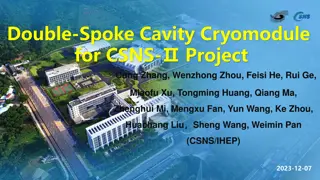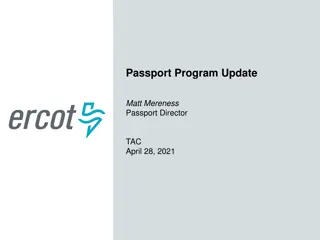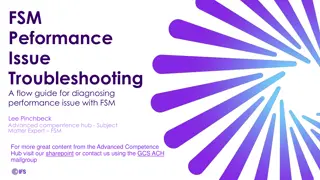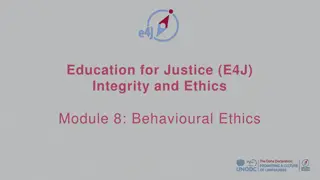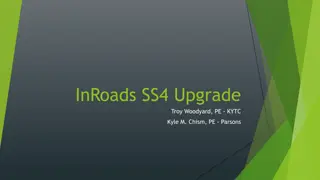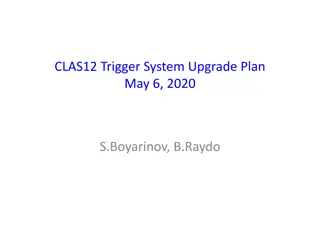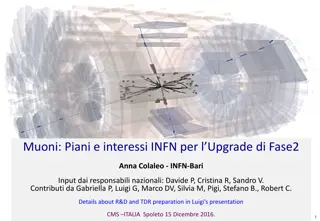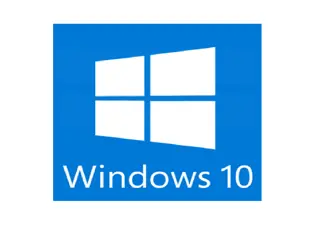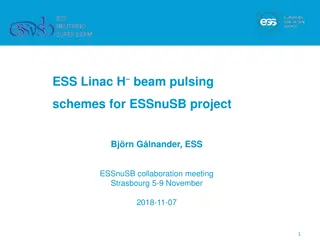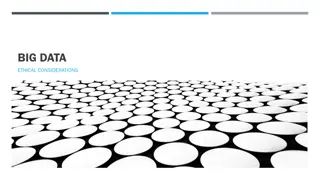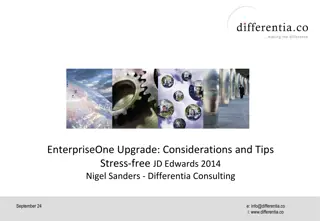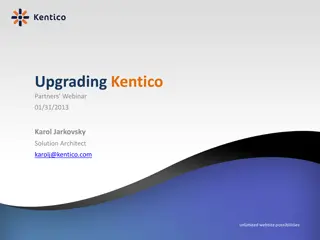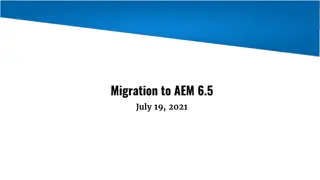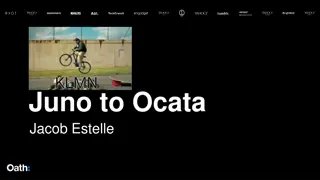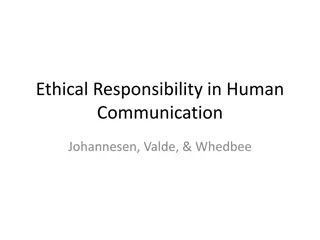Designing Your Project: Upgrade and Ethical Considerations
Exploring the process of designing academic projects, tackling challenges, and considerations for upgrades and ethical aspects. Key questions, submissions, and tips for research proposals are covered in detail.
Download Presentation

Please find below an Image/Link to download the presentation.
The content on the website is provided AS IS for your information and personal use only. It may not be sold, licensed, or shared on other websites without obtaining consent from the author. Download presentation by click this link. If you encounter any issues during the download, it is possible that the publisher has removed the file from their server.
E N D
Presentation Transcript
Designing your Project Designing your Project, , the Upgrade and the Upgrade and Ethical Considerations Ethical Considerations
What was your experience designing your ug or MA dissertation? What were the key challenges? how do you think a PhD might differ?
Key questions when designing your project What exactly is your research question? What is your theoretical approach? How will your work challenge or support the existing scholarly literature? Why have you decided on this particular chronology or case study? Which sources are you using for your research and what challenges do they present? Which skills (language, paleography, Digital Humanities etc) do you need for your research and are you confident you have (or can acquire) these? What resources?
Upgrade There is information at Postgraduate Research Handbook (warwick.ac.uk) and more specifically at Upgrade Procedures (warwick.ac.uk) Sample Upgrade Papers (warwick.ac.uk) Upgrade Interviews (warwick.ac.uk) You will have your progress reviewed each year but at the end of the first year you will have a special upgrade panel passing moves you from MPhil to PhD track. Usually held in summer term of your first year except for M4C students
What will you submit? 1) draft chapter of 5,000 6,000 words in length (can be an extended literature review, where relevant, or a case study that illustrates some key themes of your proposed work). [5k for M4C] 2) 2,500 word Research Proposal, giving a synopsis of your research project and a working title, with bibliography (not part of the word count) of relevant primary and secondary material [1.5-2k for M4C, no bibliography] 3) chapter plan and timetable for completion of your thesis (max 1500 words) 4) completed History Ethics Review
What to put in the research proposal? central research questions you plan to address and what kinds of answer you are looking for; the ability to situate your work within the existing scholarship and to show how your research engages with this body of research, methodologies or ideas; what methods you plan to use; what your source-base will be and where you will be consulting these materials (this may involve letters or reconnaissance trips to relevant archives in advance) Could use these as subheadings ie Research Questions/Aims, Research Context, Methodology, Sources
How are you defining your terms or research areas and why? Do you think your research is too narrow? Or too broad? How will you achieve your objectives in the timescale allowed? Is your timetable too challenging? Will you be able to provide the in- depth analysis required in the word length allowed? Do you have the necessary skills and resources? What are the ethical issues in your research?
Chapter Plan and timetable No one is going to hold you to it exactly! Shows that you have thought about the design of the project and how you will impose a sense of order/argument onto the material You have 80k words, so, with an introduction (c.15-20k) and conclusion (8-10k), this leave scope for about 4-5 chapters of about 12-15k words. [you will nearly always have too much material!] The timetable helps you plan research trips, publication ambitions, applications for jobs/postdocs and helps you see if you are on track. Some people like to use GANTT charts but it s up to you. You are registered for a maximum of 4 years and must complete within that time. At the end of that time the university will de-register you!
The interview has 5 main purposes: Test your ideas with independent academics formative feedback from them to help refine and improve your proposal The panelists can continue to offer help afterwards it gives you experience of a viva style of examination Tests your ability to work at doctorate level Try to enjoy it! Not supposed to be scary ! Friendly and supportive but be prepared for a serious exploration of your work
Your supervisor(s) will attend but not say anything! They can observe and take notes. Two other members of staff discuss with your supervisor who is most appropriate Musical chairs element to ensure supervisory arrangements are working well Panel makes recommendations And submit a formal report which is shared with your supervisor(s) The Panel
Some common issues that arise: Unclear or too wide a set of research questions Vague understanding of sources Unclear research methodology Unrealistic scope (including chronology) or timetable Some conceptual gaps or fuzzy conceptual grasp
M4C has its own process! Mid-Year Review and End of Year Report (sharepoint.com): 1 Feb-22 March. A research statement of 1500-2000 words indicating the scope of your thesis, and outlining the key research questions, research context and methodology A 5000-word example of your written work ie a chapter or a section of discursive prose from your thesis, or equivalent output for practice-based PhDs. For M4C award holders in year one (or part-time equivalent) requests for extended funding can be made where there is a rationale for complex or extended training, skills acquisition, extended archival visits, fieldwork or placement needs. An M4C award can be extended up to a maximum of 6 months full-time or 12 months part-time. Assessment review interview with two assessors from outside of the supervisory team. (NB this does not preclude assessors from subsequently acting as internal examiners on final submission of the thesis).
Does your project have ethical implications? Does your project have ethical implications? Protects potentially vulnerable participants Establishes risks and benefits Ensures respect, dignity, privacy, fair treatment for participants Builds the latter s capacity to accept or reject participation
Two types of important ethical considerations: 1) Ethics in Research (and Ethics Review Form): risks to you, to participants and to institutions. NB see also the requirements set out on Travel see also Do I need Ethical Approval? (warwick.ac.uk) Applying for Ethics (warwick.ac.uk) There is a departmental ethics advisory group chaired by the Director of Research, Anne Gerritsen; there is also a University Humanities & Social Sciences Research Ethics Committee (HSSREC) Everyone needs to complete an Ethics Review Form as part of the upgrade 2) Ethics of Research (Integrity of Researchers): how to conduct your research with integrity and honesty
In addition, all research staff and students working with human participants should complete the supplementary Protecting Human Participants module How did you get on with Epigeum?
Next week CADRE workshops (warwick.ac.uk) CADRE PhD survival guide session, Tuesday 17thOctober 11-1, book via the link above. Wolfson Research Exchange Thursday GRF is about the Library in the Library room 222 on floor 2 of the Library If you haven t already done so, please arrange to meet with me for a short chat Week 4: we will be in the Modern Records Centre (back of the library)



